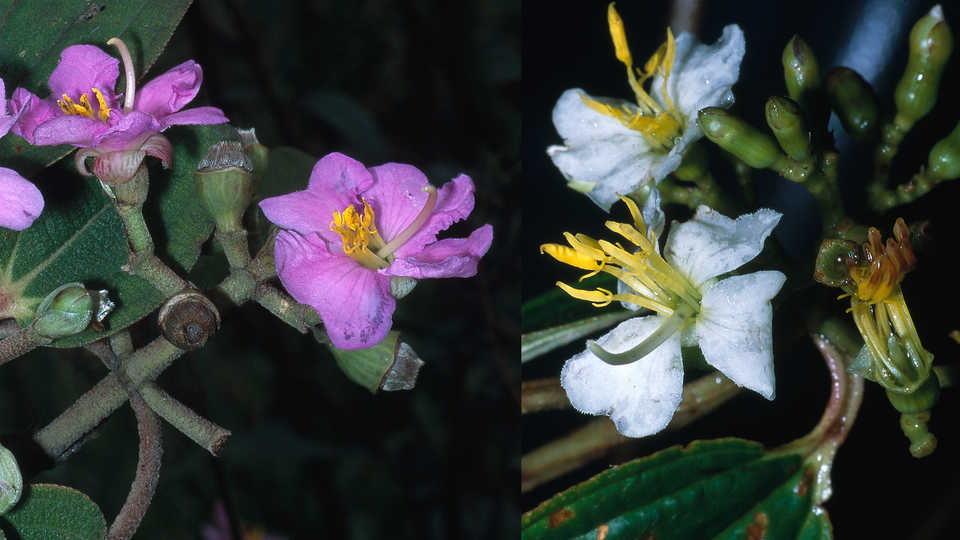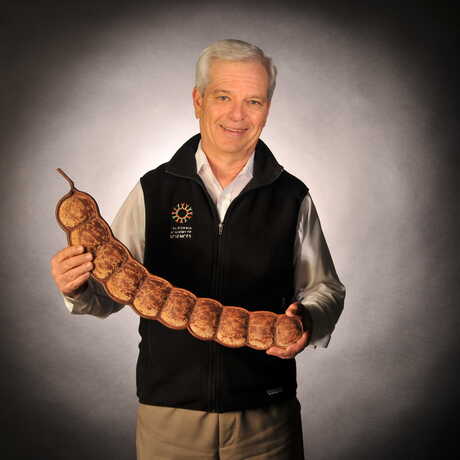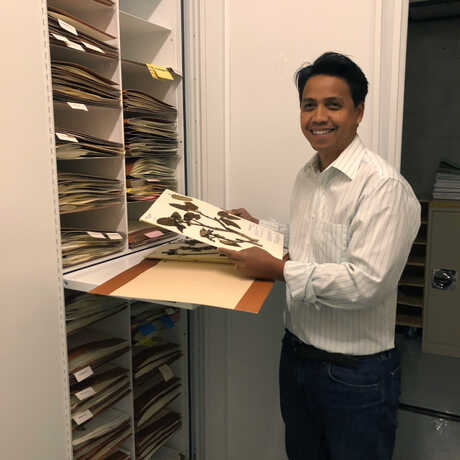
The flora of Madagascar is outstanding not only for its diversity but also for its endemism: 80% of the flowering plants on the island are endemic. For Melastomataceae - the Princess Flowers - the incidence of endemism is even higher: a whopping 98%. There are three genera of endemic Melatomataceae currently recognized in Madagascar: Rousseauxia, Amphorocalyx and Dionycha. These three genera are the subject of ongoing research at the Academy which is focused on their phylogeny and circumscription. The original circumscription of these genera was based solely on morphological data and utilized few specimens. Rousseauxia was last studied over 45 years ago and an understanding of the other two genera dates from the 1950s.
One of the major challenges of working on these endemic Malagasy Princess Flowers is their rarity. For example, over 40% of the described species of Rousseauxia are known only from type specimens. Since 2002 Dr. Heritiana Ranarivelo and Dr. Frank Almeda have carried out field work in several areas of Madagascar to collect more materials of these groups, both samples for DNA extraction and voucher specimens. This fieldwork is facilitated by the Academy's Biodiversity Center in Madagascar with assistance from staff at the national herbarium of Antananarivo. Newly collected material of these genera is allowing us to re-evaluate morphological characters using morphometric analyses and Next Gene Sequencing. The research in progress is resulting in a new circumscription of these three genera of endemic Malagasy Princess Flowers. The project is also resulting in the discovery of new species and new genera. This research is helping us to identify local areas in Madagascar that are especially rich in melastome diversity - a kind of hotspot within the broader hotspot of Madagascar in need of conservation.
The Academy's Malagasy Plant project is being carried out in collaboration with institutions within Madagascar including the University of Antananarivo and the National Herbarium of Antananarivo. Academy expeditions and botanical fieldwork are thus not only contributing to scientific knowledge, but are promoting capacity building for the next generation of biodiversity scientists and decision makers in Madagascar.
Academy Contributors
Downloadables
Visiting our collections, identifying backyard plants, and more.
Collections inquiries:
Emily Magnaghi
Collection Manager
California Academy of Sciences
55 Music Concourse Dr.
San Francisco, CA 94118
emagnaghi@calacademy.org
(415) 379-5392

